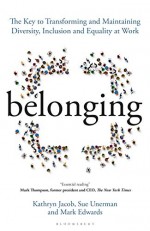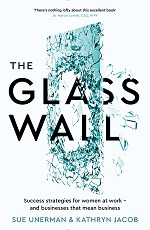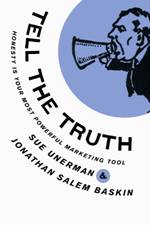“Working without an underwire bra! You have no idea how liberating that is.” Vicki Maguire
What we wear has significance. Mood follows fashion, trends follow moods. Current swings in women’s dress are considerable.
How we dress is one of the gender differences at work. When Kathryn Jacob and I wrote our book The Glass Wall, success strategies for women at work and businesses that mean business, we tried to avoid gender clichés. But we found gender differences. Dress codes are one of them.
In a survey conducted in the UK, US and Russia in 2016 we asked men and women to say where they would put themselves on a scale of one to ten where one is highly feminine in style (think Marilyn Monroe) and ten is highly masculine/macho (think Arnie). Most women skew under five ie more feminine. But between 30% (UK) and 40% (Russia) would place themselves on the more masculine end of the spectrum. Nearly all men say that they are masculine in style and score over six (ninety percent overall and 100% in Russia). This proved interesting, especially when it was discussed with colleagues. I personally would place myself at a six or seven in style, but when I said this to one senior colleague he pointed out that I was wearing a pink dress… in his view: how then could I consider my style less than very feminine? It then dawned on me that I can swing from wearing a black trouser suit on one day to a pink frock the next depending on my mood. He cannot. Not without still drawing considerable comments (to say the least).
I only know one businessman who habitually wears a skirt.
Every business woman I know sometimes wears trousers.
This of course was not always the case. Trousers were not common practice for women at work until midway through the last century. Early in my career I usually defaulted though to trousers as it seemed easier to get on in a more masculine environment dressed that way. I stopped this, and started wearing dresses more of the time after dinner with James Truman, then editorial director in chief at Conde Nast, who said that there was power in wearing dresses for women simply because men still commonly can’t.
There are shifts now in how women are dressing.
The top selling fashion item for women at the moment is Birkenstock’s Arizona sandal, which is also the most popular shoe of the past three months according to the Lyst index. Since Sex and the City women have been wearing very high heels to the office as a sign of status. Frequently shoes that cost a packet but don’t allow fast walking or running. Shoes that might only allow a stagger from a cab to a lunch table. Shoes that should command respect for the wearer simply from the perspective of managing to present complex discussion points whilst balancing on precipitous heels. Not at the moment. One of the effects of the lockdown is that women are reverting to comfortable footwear.
The fourth most popular fashion item is the Calvin Klein bralette. No underwire, no discomfort, no pushing up. Push up bras hit popularity peak when the “Hello Boys” advertising campaign launched and, with or without padding, underwired bras have dominated lingerie ever since. Not any more. Creative chief Vicki Maguire has celebrated her own personal emancipation from the pain of the underwire in Campaign by replying to the question about the one thing that she will definitely keep from lockdown: “I’m never going back to underwired bras again.”
What you wear influences how you perform. A top athlete’s apparel now gets as much scientific attention as every other part of their training. Why these days would you dress uncomfortably to have impact? The impact surely should come from what you say and do and how you say and do it, and certainly you should look stylish, but you can feel comfortable too. Look, if impossibly high heels are the item that gives you confidence then so be it, but once corsets were essential for looking good, and they’ve long been discarded.
Women dressing for comfort, flexibility and style rather than for a perceived notion of beauty is a step change. At times when so much of lockdown is damaging to women’s careers we should notice these changes and hang on to them. As even casual athletes do, everyone can dress to enhance peak performance.



Fuel your resurgence
Friday, August 28th, 2020When I was a kid the FA cup final was a huge occasion. The one match in a normal season (ie outside World Cup and Euros) when time stopped, when everyone, even people who had no fondness for football, paid attention and watched the big game.
This is far from true now in a normal season as there are so many more big European games, but this year is not a normal one as you will have noticed. So we were all (even mildly attentive football fans) delighted to welcome the return of this occasion this year albeit later than usual. Arsenal beat Chelsea 2-1 at an empty Wembley on August 1st 2020 thanks to two goals from captain Pierre-Emerick Aubameyang.
There is something to learn from the Arsenal manager’s analysis of his victory.
Mikel Arteta started his new job in January, and like the rest of us, his season has not gone exactly as planned.
He is the first person to both captain and manage Arsenal to victory in an FA Cup final.
Arteta, who won the trophy twice with Arsenal as a player, is in his very first managerial role.
“I think it’s even better winning this than as a player,” he told BBC 5 Live.
“I am really proud of what we have achieved because I know the difficulties and everything we have been through,” said Arteta.
In post match interviews, interestingly he didn’t talk tactics or strategy, or call out particular players, he talked about belief. “For me personally, it has been so tough over the past six months with a lot of things that have happened in our lives but I had just one mission when I came here and that was to make the players and staff believe we could do it.
“We had to change that energy and that mentality”.
A good example then of the leader of the team prioritising whole team culture, and his people’s happiness (players, backroom staff and fans) as a crucial aspect of winning. One that is frequently downplayed in business and is replaced with time spent planning logistics or on giving the spotlight to a few star players. Or if it is on the agenda it is dealt with in a 10 minute rousing speech to the team that is not followed through. As I wrote in my July blog: you can delegate many areas of expertise but as a leader you cannot delegate culture.
Speaking on TalkSport Arteta explained that the turning point in the game was when Chelsea scored in the first five minutes. He said that this was the very best thing that could have happened. Going one nil down. We’ve all watched games when this was effectively game over. Where the disadvantaged team loses focus and morale slips. In this instance the Chelsea score made the Arsenal players go for it, release the hand brakes, play instinctively. Falling behind so early made them stop overthinking tactics, over worrying about making mistakes and passionately commit to winning.
Sometimes what you need to spring forward is to be knocked back. As we come into the autumn, and results awards season for Campaign Media, Media Week and IPA Effectiveness, this is a good point to remember. Everyone has worked very hard. Not everyone will win. Whatever your outcome, don’t just take the glory of any win and shrug off any loss. Make sure that your response includes the whole team. Most of all: Remember the feeling of not winning, of being behind the competition, and use this to fuel your resurgence.
Posted in MediaComment | No Comments »